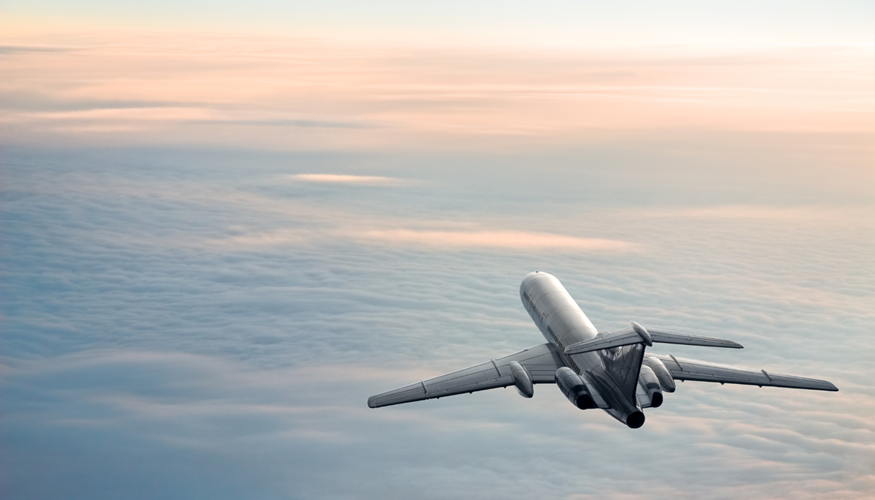- According to the Brain Trust CS Tourism Barometer, 74% of Spanish leisure travellers do not use them.
- And the majority (69%) of those who use them indicate that they have no influence on the purchase decision.
- Multi-channel, customer experience and personalised offers are the keys to future loyalty.
Madrid, 2 August 2016- Loyalty cards when buying or acquiring tourism services no longer have an influence on the consumption of leisure travellers in Spain. This is demonstrated by data from the second wave of the 2016 Tourism Barometer prepared by Brain Trust Consulting Services, the Spanish multinational consultancy specialising in the tourism industry, among other sectors.
According to the Barometer, only one in four Spaniards who travel for leisure purposes habitually use loyalty cards from companies related to the tourism sector. Of those who use them, 52% do so to accumulate points compared to 32% who use them to redeem them and only 16% who use them for both purposes. For Ángel García Butragueño, head of the Tourism and Leisure Division of Brain Trust CS and Director of the Tourism Barometer, " Customer loyalty in the tourism industry is now much more complex than giving them points for their purchases. New travellers expect personalised treatment from companies, based on their habits and preferences, they demand customised offers and, although price continues to be a relevant factor, other aspects related to the customer experience now have much more weight in their decision making".
The analysis of travellers' data, through the intelligent use of Big Data, will be fundamental in the knowledge of the customer, and in its application to offer them completely personalised proposals. The travellers interviewed say that, far from being members of an increasingly less selective loyalty club, what they want is to feel unique, and that the offer they are given is individualised, and not only with quantitative but also qualitative benefits.
According to the Barometer data, it seems that loyalty cards are not used out of a need for price reductions, nor to obtain rewards that would otherwise be unattainable for users. In fact, the greatest use of loyalty cards is among those with the highest household incomes (over €60,000), and by age, young people under 35 are the least likely to use them.
"Young people demand much more from brands, and they are the travellers of the future," says García Butragueño. "On the one hand, they demand multichannel access and the ability to purchase tourism products from wherever they want and through any device. On the other hand, they are looking for innovative, differentiated and personalised offers that, despite having a good price, indicate that they are acquiring something unique designed especially for them".
In an increasingly globalised world where, thanks to technology, travellers have immediate access to all information, tourism providers must place themselves in the minds of consumers from an emotional point of view if they want to build loyalty among their users, since, once the product has been commoditised, they behave promiscuously towards brands, through the philosophy of "smart shopping".
Despite this change in mentality, there are still cards that will be and are being used this summer, such as airline, hotel, and gas station cards.
Those leisure travel users who do use them opt for some loyalty cards over others, with Iberia (51%) being the leader in airlines, followed by Vueling (12%) and Air Europa (10%). NH Hoteles leads in hotel loyalty cards with 29%, followed by Meliá with 19%. With regard to other providers, Travel Club is the leader with 46%, followed by petrol station cards with 20%, with a low use of the Renfe card with a meagre 4%, and car rental cards with a marginal percentage of 2%.
By Autonomous Communities, the Canary Islands and the Basque Country, with 36% of use, are the most likely to use loyalty cards, compared to Catalonia with 20%, and the Valencian Community with 14%, where the use of these cards is notably lower, while in Madrid they are used by 28%.
Companies in the travel industry have the opportunity to look to and learn from other more advanced sectors, where the concept of loyalty has become more sophisticated, offering spaces and communities in which frequent customers not only benefit from the discounts of loyalty programmes, but also communicate, share and disseminate their experiences, with the feeling of belonging to affinity and exclusive groups, with benefits that are no longer so much economic as social, according to the statements of the travellers interviewed. They also concluded in their responses that the loyalty programmes of airlines, hotels, car rental companies and even travel agencies have stagnated in time, and have a format that is certainly obsolete, while they expect new, more revolutionary concepts, innovation and creativity in the loyalty programmes of the future.
About Brain Trust Consulting Services and Ángel García Butragueño
Brain Trust Consulting Services is a Spanish multinational company with offices in Madrid, Mexico, Buenos Aires, Sao Paulo and Santiago de Chile, and a team of more than 100 professionals. Its staff of qualified consultants is dedicated to offering high added value business solutions and to the permanent search for differentiation, which has led Brain Trust CS to successfully develop new analysis methodologies and innovative solutions in areas such as business strategy, operations improvement, product and channel marketing, advanced customer management (customer intelligence and big data), competitive intelligence, customer experience and digital transformation.
The company has clients of very different sizes and sectors such as: Tourism, Telecommunications, Banking and Payment Methods, Insurance, Energy, Distribution and the Legal sector. Within the tourism industry, Brain Trust CS works for most of the leading travel agencies in Spain, major airlines, hotel chains and car rental companies, as well as technology companies specialised in this industry.
Since 2009, Ángel García Butragueño has been responsible for the Tourism and Leisure division and Member of the Advisory Board of Brain Trust CS with the aim of contributing to the development, growth and diversification of the firm and, through his work and thanks to his more than 30 years of experience, to promote innovation, competitiveness and profitability of companies and institutions in the tourism sector.
After working for Mondiale Tours, Viajes Triángulo Azul, Ibex-Iberian Express and Viajes Ecuador, Ángel joined American Express Viajes where he worked in various areas, reaching the position of General Manager in 2001. In 2008 he managed the company's merger with Barceló Viajes and was appointed Director and General Manager of the new joint venture.
He has been the European Vice President of American Express since 2005 and was responsible for designing the company's strategy in the SME segment in the markets of Scandinavia, Germany, France, Belgium, the UK and Spain. He was also a member of the Management Committee of American Express Spain and was Chairman of GEBTA, the largest corporate travel trade group in Spain in 2007 and 2008.







